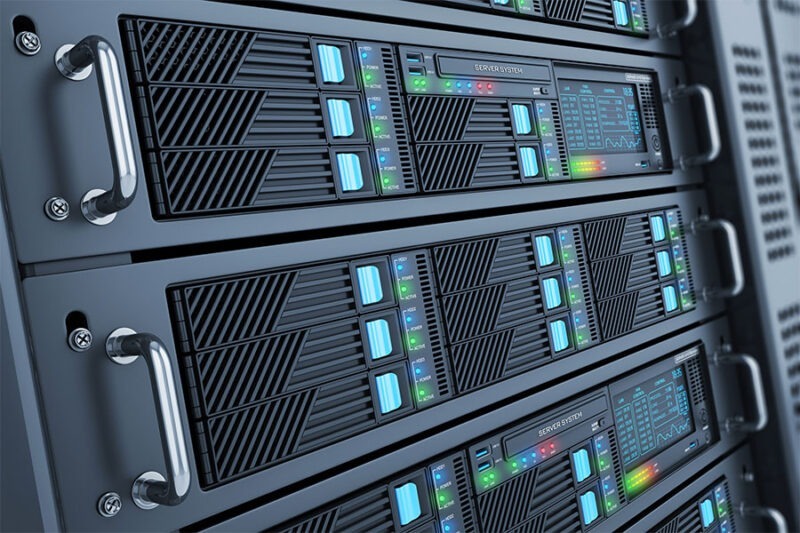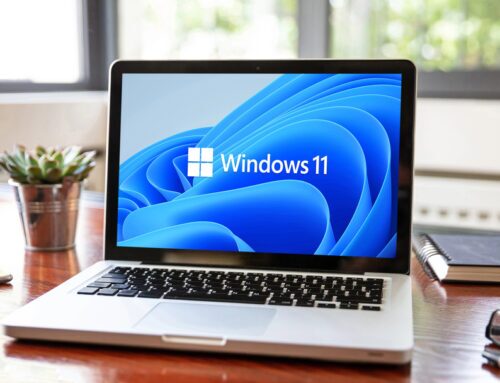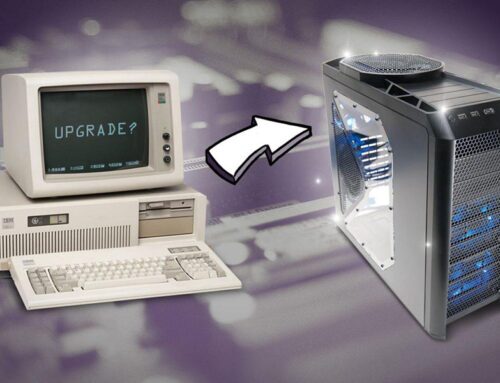Keeping up with technological standards is necessary for most businesses to stay competitive, so you may have found yourself wondering, “Do I need a server for my business?” The answer to that question depends on the trajectory of your company’s success, the structure of your IT security and how you use stored company data. Deciding whether you require a small business server is just one part of the equation, however. You also need to decide how many servers will fit your needs and what type of server is appropriate. It’s also important to note the additional considerations that come with the use of business servers.

Reasons My Business Needs a Server
Not all small businesses need a server, but there are a few factors that should have an impact on whether your company should take this step.
- What are your industry compliance requirements? If your company is regulated by agencies such as HIPAA or PCI, a server may be the best option to remain in compliance. Servers offer the ability to run domain controller functions that assist with setting required security protocols. Although it’s possible to meet these requirements without a server, it’s prohibitively difficult.
- How fast is your business growing? The complexity of managing workstation computers and sharing information depends on how many users require access to the company data. Handling security updates on one system at a time and sharing files between individuals is a workable solution until the business grows and the number of employees involved increases. A server provides a central location to push out security updates and upload information that needs to be available to everyone.
- How is your data backed up? Even larger businesses will experience data loss at some point. If you don’t have a strong recovery plan to implement when it’s your turn to lose important information to the ether, the right server can provide your company with space to save a copy of your important information.
- How are you protecting your business from data breaches? When it comes to protecting your valuable data from outside attacks, incorporating a server provides customizable security solutions that go far beyond the capabilities of your router, especially when configured with firewall software. Though similar technologies are often included in routers, they’re rarely kept updated, which can leave your information vulnerable.
- How much file and application sharing is needed to function? If you have central applications that must be used by many employees or data that requires frequent and quick access, a central server offers a convenient location to store this information. This also allows you to limit who can access what, giving you control over how your data is disseminated.
How Many Servers Do I Need for My Business?
The number of servers you need depends on the intended purpose, your data storage requirements and the amount of user traffic. For some companies, it may be feasible to get by with just one, but implementing at least two will offer better availability for websites or applications that need to run 24/7 and redundancy for backing up sensitive files. To get an accurate idea of your needs, there are a few estimates you’ll need to calculate.
- Measure user activity and transactions. If your employee base is small, you might be able to get an accurate estimate by observing their activities or surveying them for their own estimates. If this isn’t feasible, there are a number of analytic tools you can use to do the legwork for you.
- Estimate storage, CPU and memory needs. If the server will be used to host applications or websites, determine how much space will be needed for them to run efficiently. If the websites are undeveloped or you don’t have access to the applications, check out the load from similar sites and programs as a preliminary measurement. It’s also important to consider the space needed for the server operating system. You need to manage other server software, such as the print server, mail server and file server.
- Calculate the space needed for disaster recovery and high availability. Websites and applications that need to be online indefinitely will be best served with some redundancy. The same is true for any important data that’s crucial to your disaster recovery plan. Estimate the space you need to accomplish this.
- Add and compare. Once you have these measurements, add them together for your estimated total and compare them to the server options that fit within your budget. The space and power behind the unit you choose will depend on the quality of the server components within it. Then simply divide your estimated total by the server’s potential.

On-Premise Server vs. Off-Site Solutions
Once you figure out how many servers you need, the next decision is where you’ll find them. Consider whether you need remote access options and any space limitations you may be working with. You have a few choices that each come with their own strengths and limitations. In general, you need to decide whether you want your server to be on-site, off-site or hosted in the cloud.
When Is an On-Site Server Necessary?
An on-site server is a server located at your facility. If your company handles sensitive information and you aren’t comfortable depending on someone else to prevent breaches, having the server at your location requires you to bear the full weight of that responsibility. Not only will you be responsible for general maintenance in-house, but you’ll also need a server rack to keep your machine cool, avoid electrical disturbances and protect it from physical breaches.
When Will a Dedicated Server Work?
Dedicated servers are another option that offers you all the benefits of a physical server without any of the responsibility to manage it. These are hosted off-site, generally at a large data center, and usually accessed through a leasing program. The hosting company provides all maintenance and physical security while you get the benefit of the server’s space and functions. The potential for a large-scale data breach is an important consideration when choosing this route, however, because you won’t have control over the security measures taken by the hosting company.
Can You Use a Cloud Server?
Your final option is to consider cloud solutions for your server needs. A cloud server provides the same functionality as a dedicated server but is offered through shared cloud storage space. This shared hardware reduces the cost needed to obtain your small business server and allows you to scale your server space up or down quickly to match your company’s needs, preventing you from paying for space you aren’t using. In return, you run your network through the virtual space, creating access for your employees wherever they have internet service.

Business Data Protection
Whether you choose one simple tower server or are depending on a cloud solution to meet your needs, you’ll want to have some IT assistance to get the most out of your new server. You’ve probably got it covered if you have a dedicated IT team at your facility. Most small businesses, however, don’t have the space or the budget for this, especially when their needs may not justify supporting an in-house IT technician.
Since managing your own security efforts is an important part of protecting your information, attempting to wing it is likely to leave you vulnerable. Fortunately, there’s a simple and affordable solution that can help you keep your network safe and ensure you have the setup you need.
Outsourcing your IT services can provide you with access to dedicated IT professionals at a fraction of the price you’d pay to hire someone full-time. Choosing a service like EIRE Systems can provide assistance with selecting the best cloud solutions for your needs and ensure you’re up to date on the latest IT security threats and solutions. Because this service is available 24/7, you can always get in touch with someone to assist you, even if you come across a server issue when it’s past traditional business hours.
EIRE Systems, the leading IT services provider, has over 20 years of experience providing outsourced IT support to businesses in Japan, Hong Kong, Singapore and China. If you’ve been considering upgrading to a server for your business, but you’d feel more comfortable having an expert’s opinion, contact us today so we can put you in touch with a knowledgeable IT specialist to make sure you have the best server or cloud services to handle your needs securely and efficiently.
About the Author: EIRE Systems
EIRE Systems is a leading independent provider of professional IT, AV and Access Security services to the financial, insurance, manufacturing, health care, retail, construction, hospitality, commercial real estate, legal, educational and multinational sectors in Japan and throughout the Asia Pacific region. EIRE Systems has expertise across a wide spectrum of Information Technologies, with a track record for successfully completing hundreds of assignments since its establishment in 1996.



